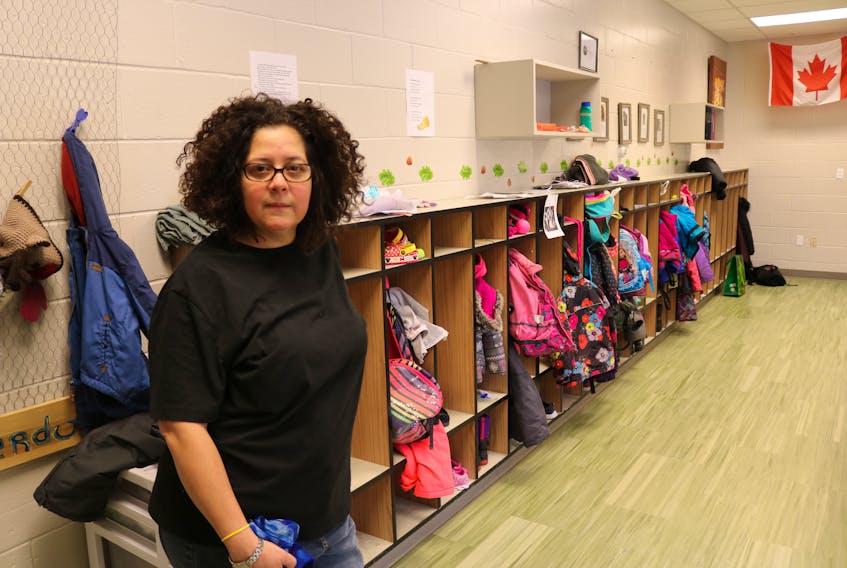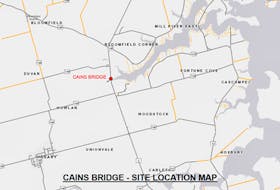CHARLOTTETOWN, P.E.I. - After almost 10 years as an early childhood educator (ECE) Cristina Morales says she is considering leaving the field.
Morales became an early childhood educator in 2010 and eventually settled into a position at the Île Enchantée centre at the Carrefour de l’Île Saint-Jean. She loves the work. But, as her own two children, aged 12 and 11, have grown older, she has come to realize that her wages are not allowing her to plan for their future.
“When the kids start to grow up, they start to demand stuff. Now you have to think about college,” Morales said.
After taking a two-year diploma, and working more than eight years as an ECE, Morales is earning $16.55 an hour. This rate, set by the province at licensed early year centres, is among the higher wage rates available for early childhood educators in P.E.I. The wage scale ranges from $12.48 to $17.56 per hour, depending on the education and experience of staff, but the average wage is $15.60.
Morales said her own centre has been dealing with staff shortages due to the difficulty of filling positions with what many see as inadequate pay. She said she is hopeful the province will increase wages of ECEs by April.
“If it's the same thing, it's the same political blah blah blah, and nothing changes, I'm going to look for another job. Absolutely,” she said.

Kathleen Couture, executive director of the Association des Centres de la Petite Enfance Francophones de l’Île-du-Prince-Édouard (ACPEFIPE), says many ECEs, from both anglophone and francophone centres, are leaving the profession to work in the school system as educational assistants.
“You can work on one side of the building at $15.60 an hour, because you just graduated with a two-year diploma, and then you can walk across the hallway to the school board and be an educational assistant at $21, $22 an hour,” Couture said.
Couture said her organization has begun advocating for wage parity with educational assistants. This could require a wage increase of $7 an hour.
POLL: What do you think is a fair pay scale for early childhood educators in P.E.I.?
ACPEFIPE has begun organizing a series of educational rallies throughout the province, focused on reaching out to parents. A pancake breakfast is planned for this morning in Charlottetown at the Carrefour starting at 9:30 a.m.
Sonya Hooper, executive director of the Early Childhood Development Association of P.E.I., said wage rates at childcare centres vary depending upon how they are funded by government. Designated early years centres receive significant provincial subsidies and are required to pay educators based on a provincially mandated wage scale. Parent fees are also set by the province. Most French-language centres fall into this category.
Other private, non-designated licensed centres may or may not be funded by the province, but usually rely upon parent fees. These centres are not required to pay educators according to a mandated wage scale.
Hooper said non-designated childcare centres often charge parents higher fees, but also pay educators at a lower wage scale than the designated centres.
Recognition needed
One solution could be making government grants to non-designated centres contingent on paying wages at the rate of designated centres, she said.
“It's an important job, educating our youngest citizens. And there does need to be some recognition for that role,” Hooper said.
Jordan Brown, the minister of Education, Early Learning and Culture, agreed retaining ECEs — particularly those in francophone childcare spaces — has proven to be a challenge because of wage rates. He also acknowledged pay increases for educators in designated spaces have been “ad hoc” since 2010.
But Brown also cautioned against a sudden increase in pay for ECEs at designated centres.
“The obvious effect would be, if you're running a licensed centre, you're going to find it very hard to keep your quality staff,” Brown said.
“The options you have are to eat that pay increase to compete, or to charge families more."
Brown said his department has contracted a consultant to examine the sustainability of the early childhood educational sector. The study is due to be completed in mid-March. Brown said he hopes to introduce legislation based on the report’s recommendations in the spring.
“We get it. It's just a question of how you do this sustainably to ensure we don't throw the industry out of balance,” Brown said.
RELATED









